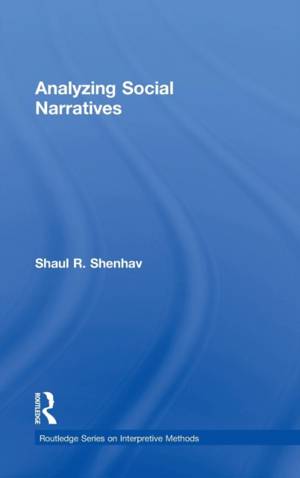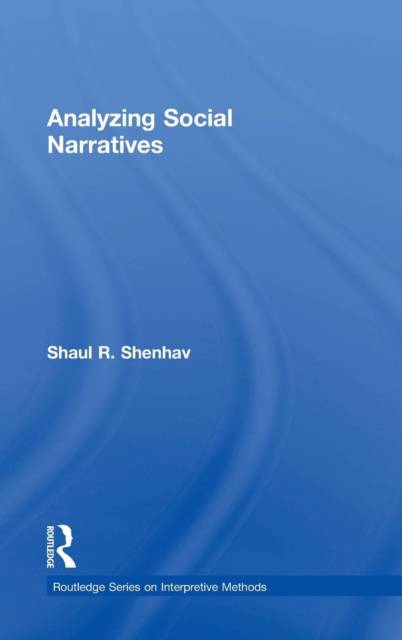
- Afhalen na 1 uur in een winkel met voorraad
- Gratis thuislevering in België vanaf € 30
- Ruim aanbod met 7 miljoen producten
- Afhalen na 1 uur in een winkel met voorraad
- Gratis thuislevering in België vanaf € 30
- Ruim aanbod met 7 miljoen producten
Omschrijving
Interpreting human stories, whether those told by individuals, groups, organizations, nations, or even civilizations, opens a wide scope of research options for understanding how people construct, shape, and reshape their perceptions, identities, and beliefs. Such narrative research is a rapidly growing field in the social sciences, as well as in the societally oriented humanities, such as cultural studies. This methodologically framed book offers conceptual directions for the study of social narrative, guiding readers through the means of narrative research and raising important ethical and value-related dilemmas.
Shenhav details three classic elements of narrative--text, story, and narration--familiar concepts to those in literary studies. To the classic trilolgy of terms, this book also adds multiplicity, a crucial element for applying narrative analysis to the social sciences as it rests on the understanding that social narratives seek reproduction and self-multiplicity in order to become "social" and influential. The aim of this book is to create an easy, clear, and welcoming introduction to narratology as a mode of analysis, especially designed for students of the social sciences to provide the basics of a narratological approach, and to help make research and writing in this tradition more systematic.
.
Specificaties
Betrokkenen
- Auteur(s):
- Uitgeverij:
Inhoud
- Aantal bladzijden:
- 104
- Taal:
- Engels
- Reeks:
Eigenschappen
- Productcode (EAN):
- 9780415537407
- Verschijningsdatum:
- 21/05/2015
- Uitvoering:
- Hardcover
- Formaat:
- Genaaid
- Afmetingen:
- 155 mm x 231 mm
- Gewicht:
- 294 g

Alleen bij Standaard Boekhandel
Beoordelingen
We publiceren alleen reviews die voldoen aan de voorwaarden voor reviews. Bekijk onze voorwaarden voor reviews.









